Internet
Pocket WiFi at Rome Airport: prices, providers, and how to rent
Want to use a Pocket WiFi at the Rome Airport? Get to know all about the available options and how you can rent one!
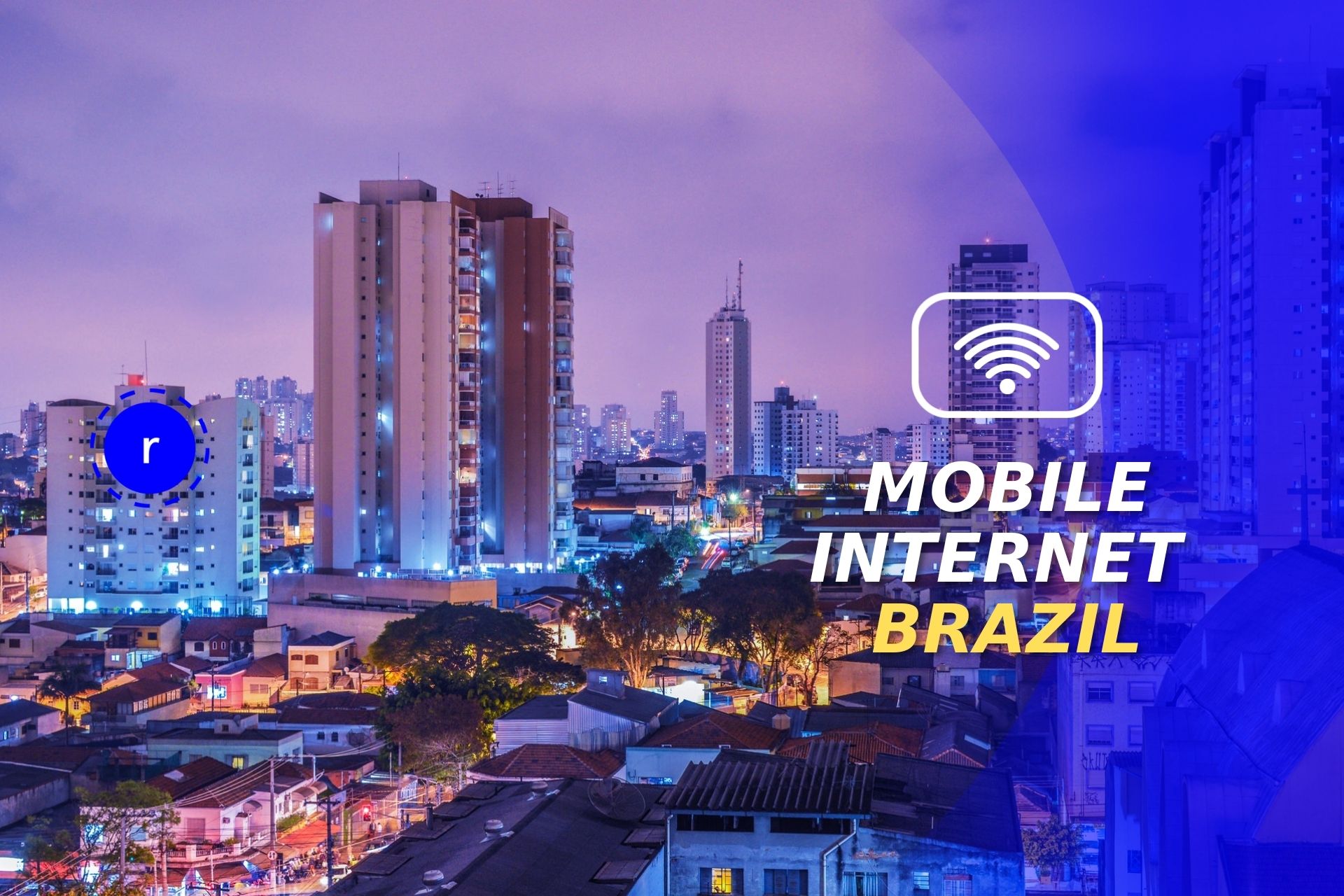
Table of Contents
Nowadays, Brazil is one of the most visited countries in Latin America. There are many things to do there, such as visiting the beautiful beaches of the country, enjoying the carnival, and more. But, people must know how the mobile internet Brazil works, right?
That’s why today we will be focusing on telling people everything they need to know about connectivity in Brazil. There are many things to say, and people must consider them all to have the adventure they have dreamed of while being connected to the internet.
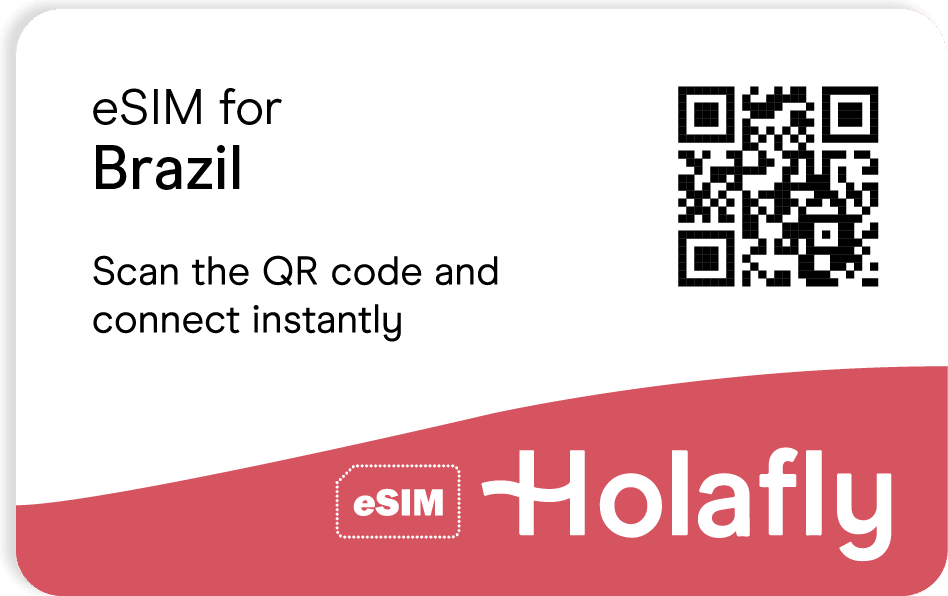
When talking about cellular internet, Brazil is maybe the country with one of the best connectivity on the continent. People can find all kinds of ways to connect to the internet while being there, such as SIM and eSIM cards, and many others. So, if you are planning to go there, there’s no need to worry about being disconnected.
Still, there are some questions going around people’s minds. There are numerous options, that’s true, but which one should people use? That’s something people truly worry about, but we will answer your questions here!
Something to keep in mind is how much money will someone spend when traveling. That’s pretty important, and people must pay attention to what they will spend on, that way, they can forget about future money related headaches.
So, in case you are wondering which are the standard rates in Brazil when looking for internet service, we will give you a brief look.
| Service | Internet rates in Brazil |
| SIM Card Brazil | 15 to 60 USD |
| eSIM Card Brazil | 19 USD to 54 USD (unlimited data included) |
| T-Mobile Roaming | 30 to 47 USD depending on the chosen plan |
| Vodafone Roaming | 6 USD per day |
| Telstra Roaming | 10 USD per day with the Traveling Pass |
| Pocket WiFi | 55 to 103.94 USD |
| Public WiFi | Free |
As crazy as it sounds, people can now take their SIM cards when traveling, so they stay connected wherever they go. But, these SIM cards we are mentioning are specially used for traveling purposes, making them different from the rest of the cards we have seen before.
For those who want to take a SIM card on their trip to Brazil, there are different alternatives to use. But, there’s one we recommend more than the rest, and that’s online stores.
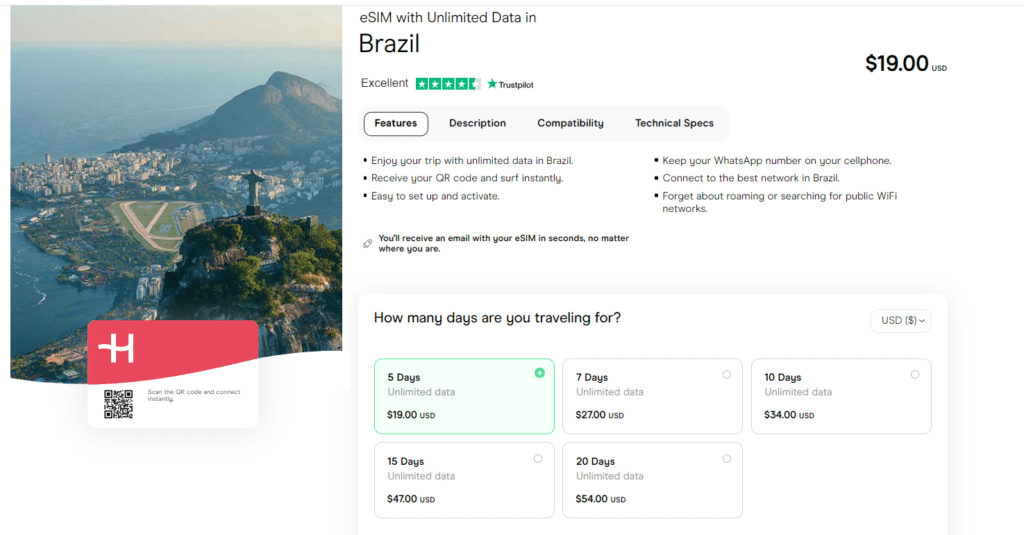
For those wondering what is an eSIM, the answer is: a digital SIM card that will provide cellular data while traveling around the world. It is as simple as that and people shouldn’t be too worried about how to use it.
These are quite similar to the traditional SIM card everyone has heard of at least once in their lives. But, the only thing to consider here is the fact the eSIM will work alongside your normal SIM without any issue.
So, if you are planning to go to Brazil and connect to the internet while being there, the Holafly eSIM for Brazil surely will help you out a lot.
Nowadays, there are ways for people to access the internet with their domestic operators. It is not as hard as some people can think, and thankfully, for some operators, Brazil is on their list of countries where the service is available.
Is there a downside to all of this? Actually, yes. The service we are talking about is known as roaming, and it tends to be pretty expensive. Therefore, people should pay attention to the rates companies have when using this alternative.
For those who don’t know, T-Mobile offers its roaming service to people who want to travel to Brazil. As long as someone stays up to date with their local cellular plan, the roaming service will be accessible for everyone.
These plans are somehow different, of course. Each one has a different price, but the important thing here is that people can rely on them as an internet provider in Brazil.
Even though Vodafone is located mostly in Europe, its roaming service is also present in Brazil. This is something great to know as people can rely on them in case they are traveling from Europe to Brazil.
In this particular case, the roaming rates are around $6 per day, which makes it somewhat accessible.
Even though Telstra is located in Australia, they can provide roaming services in Brazil. Sounds like something crazy due to how far they are, but people can access the Traveling Pass they offer.
In this case, the price to pay is $3 per MB consumed, which can quickly scale if people don’t pay attention to how much data they consume on their cellphone.
Another alternative for people to consider using when traveling to Brazil is Pocket WiFi devices. These devices were more famous back in the day when things weren’t so simple for telecommunications, and they are still an option nowadays.
The only thing here is that renting a device from these companies can be somehow expensive for some people. And, another thing to consider is the fact they have different penalties for people as well.
One of the alternatives for using Pocket WiFi devices in Brazil is My Webspot. The company, directly from Switzerland, offers people the chance to use their services for $7 per day while it also gives people 1 GB of cellular data per day.
But, as we said before, there are some penalties for people to consider. As for My Webspot, they will charge $102 to $204 to people who lose or damage a device from the company.
The second alternative for using Pocket WiFi is Traveler’s WiFi. They are also from Switzerland and have been in the market for quite some time now, and they offer their services in Brazil.
The price to pay is $84.85, and they will give people access to 1 GB of cellular data per day. Also, people must pay attention to penalties in case they lose or damage a device from the company, as they will charge people $159 to pay immediately.
Nowadays, people can find some free WiFi hotspots around different cities in Brazil. This is not a surprise for most people due to Brazil being a pretty tourist country and therefore, they have invested in installing some public WiFi hotspots in different areas.
Also, people can find other options as well. For example, hotels, restaurants, and even some stores will surely have a free WiFi connection for people to use.
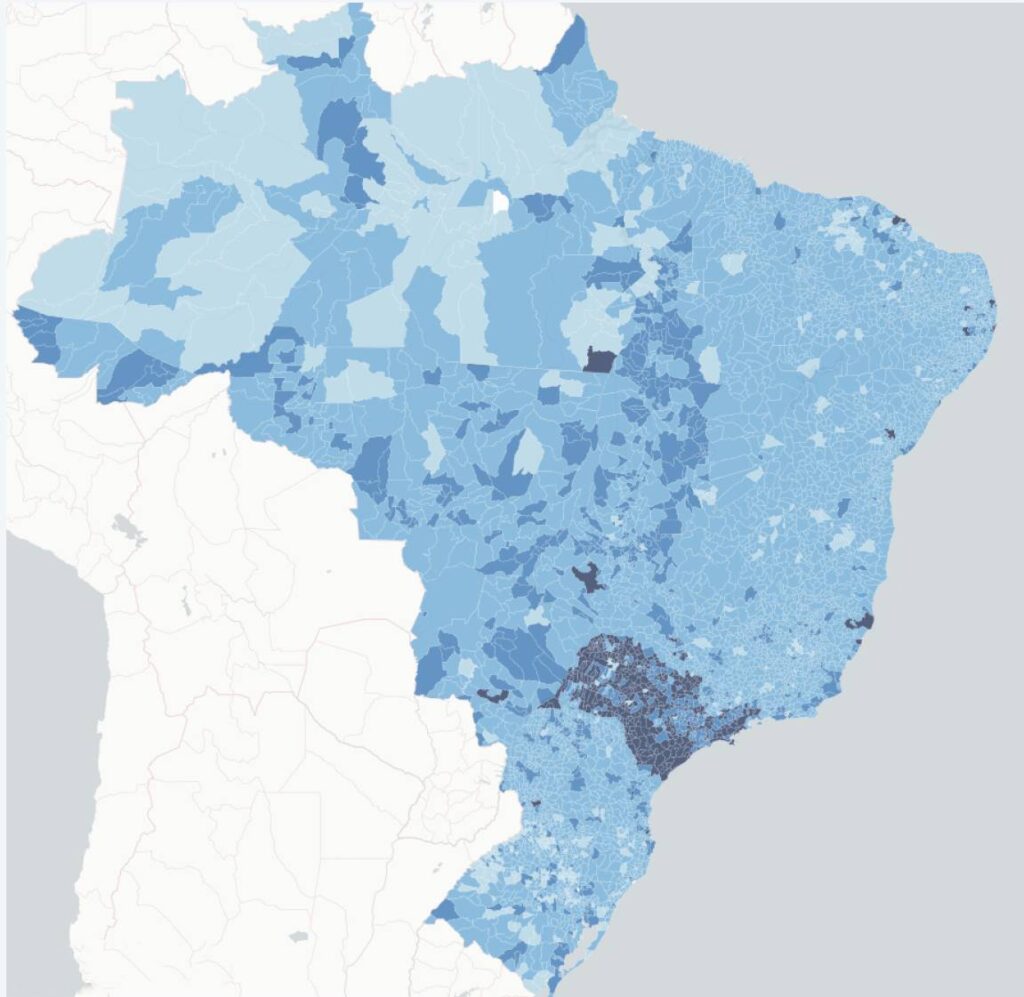
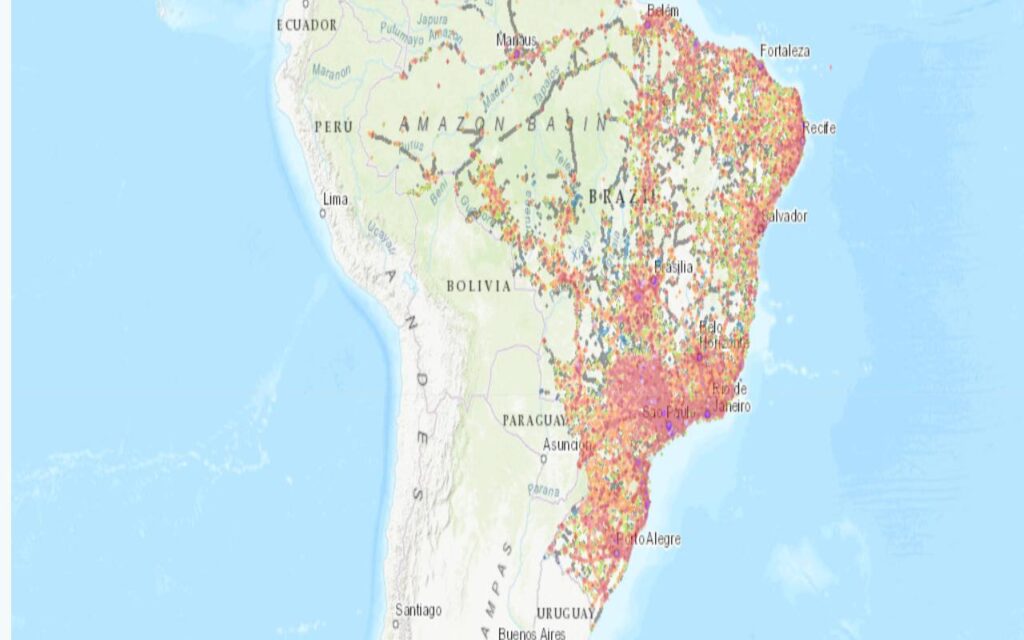
Up to this point, we have talked about different things here. There’s no need to worry in case you think one alternative is better than the other because that’s something completely normal to think.
For us, as a personal recommendation, SIM and eSIM cards are quite reliable options for people to use. These two options have been improving a lot in the last few years and therefore, have become one of the most used alternatives among people.
Up to this point, there are some questions people might still have. Therefore, we will reply to some of them here.
Most networks in Brazil operate on 450, 700, 900, 1800, 2100, 2600.
In Brazil, there are many cellular operators available. But, as for now, TIM, Claro, Nextel, Vivo, Oi.
Brazil is a country with advanced cellular network technology, thankfully for many people. Available networks are 2G, 3G, 4G, and even 5G!
Internet
Pocket WiFi at Rome Airport: prices, providers, and how to rent
Want to use a Pocket WiFi at the Rome Airport? Get to know all about the available options and how you can rent one!
Internet
Pocket WiFi at Paris Airport: prices, providers, and how to rent
It doesn't have to be challenging to have your pocket WiFi at Paris Airport. Learn with us how to get it, use it, and data plan prices.
Internet
Pocket WiFi at Incheon Airport: prices, providers, and how to rent
Learn how to get your pocket WiFi at Incheon Airport quickly. Also, discover their prices, plans, how to use and other alternatives.
Internet
Pocket WiFi at Haneda Airport: prices, providers, and how to rent
Do you need a Pocket WiFi for the Haneda Airport? Get to know the available options and find the one that suits you better!